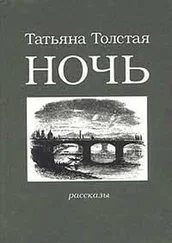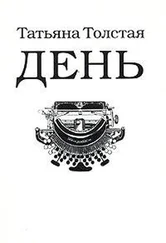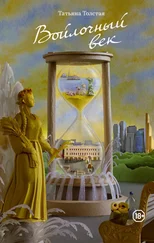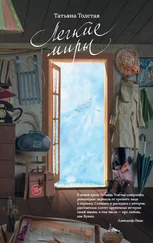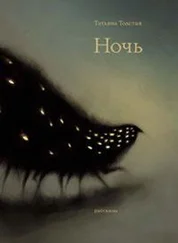And the hearth? The apartment? The most important thing one can possess is his burrow, his nest, his private space. Whether a micro-studio in a tiny rural town or a penthouse on the Golden Mile—it’s all shelter. Before moving in, a Russian will have a cat cross the threshold to purify the space of evil spirits; then he’ll invite a priest to bless it. Sometimes the order is reversed, but only after having done both will he set foot inside. The cat and the priest go hand in hand, so to say; they protect us from evil, they chase away the darkness, exuding an inexplicable aetherial, magic fragrance.
All this despite the fact that a cat, by folk logic, is generally up to no good, and in cahoots with these very same evil spirits. But he also controls them. A cat is our ambassador to the world of evil—and thus pagan—forces; he’s our protector, our Saint Tabby. (Same in Europe; see under “Puss in Boots.”)
There are places where otherworldly forces swirl. In Izborsk, for instance. It’s a tiny town near Pskov.
An oak of green by curving sea bend,
A golden chain that hugs its form;
And day and night that chain is treaded:
A cat walks round, he’s well-informed.
When ambling left—he tells a tale,
When right—a song does part his lips.
There’s magic here: a wood sprite’s trail,
A mermaid hidden in the leaves.
There, in Izborsk, a powerful tree grows; it grants wishes. The top official in town is a former military man; he showed it to us. The tree stood decorated with colorful ribbons. When his wife got pregnant again, he told us, he ran to the tree and tied a ribbon to request a girl. And what do you know? A girl was born. The official’s face beamed with a marvelous kind of internal light as he was telling this story—even Count Uvarov wouldn’t have butted in with his “Orthodoxy,” respectfully tip-toeing away instead.
A woman who sells homemade sunflower oil in the market spent forty minutes telling me about such places; she made a short, half-hour pilgrimage to the local holy spring. (I’ve been to those springs. One grants money, another love, a third good things in general, without specifying; take a wild guess as to which spring has more men in line, which one more women, and which one flows freely, neglected.) So this woman, with a driver named Nikolai, also sells quilted clothes; and once during a delivery they stopped by the spring. So here she is, just walking, when she finds strolling next to her a monk in black robes. He gives her some advice and warns her about a few things, what to do and what not to do; then— zap —he disappears, and Nikolai says, “Who were you just talking to?” She turns this way and that—the monk is nowhere to be found.
Is this Orthodoxy? A disappearing monk in black?
§
2. Autocracy is basically self-explanatory. In fact, it’s hard to comprehend what to do without it. How do you live without an overlord? Whom do you ask for permission? Who would be responsible for things? Who will show you warmth and who will punish you? To whom does one complain?
Goodness me, can you imagine life without a boss? Confusion and chaos will ensue, things will fall apart. And then foreign bosses will take over, because life without an overlord cannot be.
When the Big Bad Soviet Tyrant ceased to oppress the freedom-loving Republic of Turkmenistan, the country breathed a collective sigh of relief and welcomed the one and only Beloved Serdar, His Excellency the Eternally Great Saparmurat Turkmenbashi, who immediately upped the level of what-the-fuckery.
For instance, he decreed that a zoo be built in the Karakum Desert, and that it contain penguins. (Have you ever tried those “Karakum” candies? The ones that taste like sand and rocks?) Temperatures can rise to 122 degrees Farhenheit in the Karakum, and surfaces can heat up to 176 degrees, but with a President-for-Life that’s not a problem. Cost: a paltry eighteen million bucks.
He also ordered an ice palace to be built in the mountains. And a funicular to reach it. Just to have one.
Infectious diseases were declared illegal and it was now forbidden even to mention them. An ideological battle was waged against microbes. You couldn’t utter the words “cholera” or “smallpox.” “Herpes,” too, was out. And as a fitness initiative, he ordered his ministers to participate in running a marathon. I’m guessing that a number of offices were vacated and aired out as a result of this “Walk of Health.”
He also outlawed the ballet, the opera, and the circus. Outlawed gold teeth. Forbade video games, beards, smoking, and lip syncing. Sex was declared a government matter, to be engaged in only for the purposes of procreation, as “personal pleasure does not apply to the progressive culture of the Turkmen people.”
He ordered his citizens to believe that the Turkmen had invented the cart and the wheel. He closed the Academy of Sciences and fired fifteen thousand health workers, taking away their pensions. (Is this beginning to sound familiar?)
He introduced a new calendar, erected fourteen thousand monuments to himself (one of them cost ten million dollars; it was gilded and would turn toward the sun). He yearned to be called a shah, but it didn’t take, so he settled for “Marshal” instead. Five times he was awarded the title of Hero of Turkmenistan, but he categorically refused to accept it the sixth time, citing modesty.
He had gray hair, but then his hair grew darker, for that was Allah’s will; then he himself grew younger and died.
I’m personally an anarchist, but I dearly love autocrats and I miss Saparmurat Turkmenbashi. Who else could have concocted such a fantasy out of nothing? He made French concessionaires, holding documents for him to sign, walk on their knees from the golden doors to the golden throne. Sometimes he would refuse to sign the papers, just for shits and giggles. Let them crawl, let them polish the marble. And on their knees, in reverse, never taking their worshipful eyes off the Boss, let them take their leave of him.
If you think about it, compared to Saparmurat’s, Russian autocracy, even today’s, is an apple orchard in full bloom, crystal-clear waters on a July afternoon.
§
3. Nationality, however, that third component of the Triad, is incomprehensible, not subject to simple logic. Truly, who can see what is underneath the ground? Who wanders there? The Indrik-Beast, king of all animals? The one who lives on the Holy Mountain, eating and drinking from the Blue Sea, not harming a soul?
That’s where, as I say, the roots of the Tree are, and the expanses of the underworld; there, something mysterious is happening, something is talking and mumbling to itself, all of it unknowable.
What is “the Russian people”? Should we decide according to blood or spirit? By face or by language? Such questions could start a brawl.
I think that “Nationality”—that approximate term cautiously chosen by Count Uvarov—as applied to the Russian people, comprises three very important features, three concepts. They are Boldness, Longanimity, and “Let’s hope.” If those three come together, you have “the Russian people”; if not… no “Russian people” for you.
All three features can be separately observed in other nations. For instance, the Poles are particularly bold. One Darwin Award went, posthumously, to a bold Polish gentleman who was drinking with his buddies. As all of them got shit-faced, one yelled out “Look what I can do!” and with a circular saw hacked off his own leg. “That’s nothing,” said our hero, who, grabbing the saw, cut off his own head.
Longanimity, by contrast, is not a particularly Polish quality. It does apply to the Czechs, though there aren’t many stories of Czech boldness. And these nations are practically neighbors.
Читать дальше


